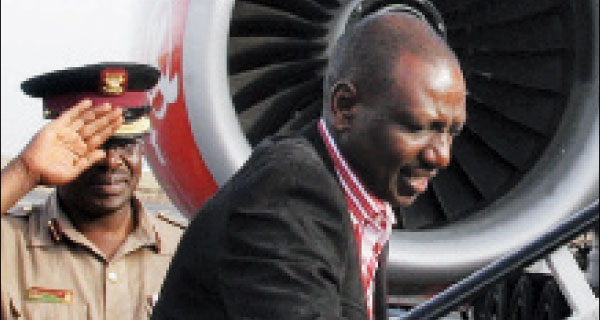×
The Standard e-Paper
Stay Informed, Even Offline
 |
By Cyrus Ombati
The controversy over the proposal that President Uhuru Kenyatta and his deputy William Ruto should follow The Hague trials through videolink raged as it emerged that Kenya had also made the request.This happened as delegates last evening began discussions on an AfricanUnion motion on “indictment of sitting Heads of State and Government and its consequences on peace and stability and reconciliation” at an assembly of ICC member states in The Hague, Netherlands.